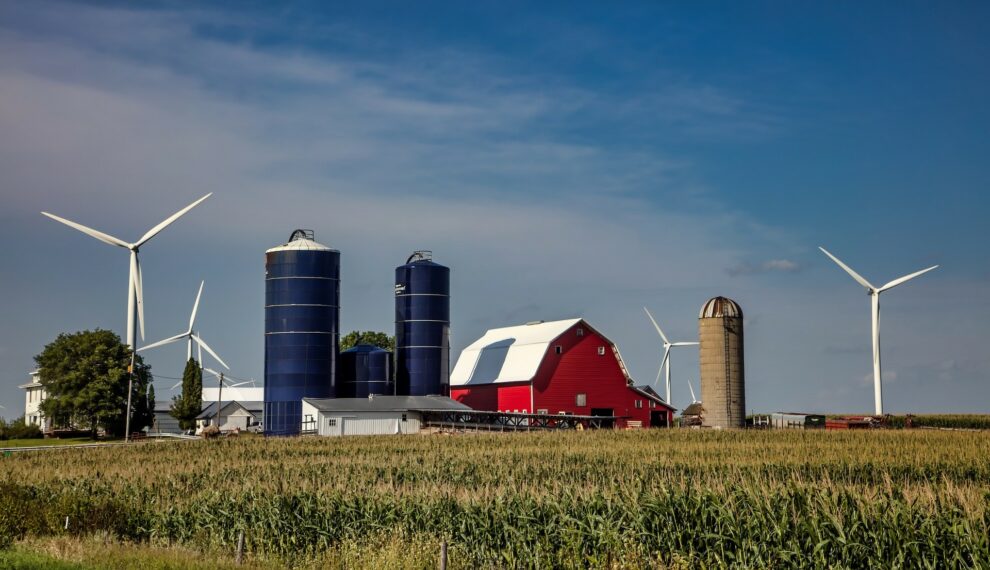Since the industrial revolution, technology keeps developing in the modern world, offering more and more new innovations that drive human progress in different spheres of life. But what is the adverse effect of such rapid technology development? Increased production volume, heavy use of raw materials, resources depletion, and the growth of carbon emissions are among the many negative impacts of technological advancement on our planet.
In the last decades, the impact of human activity on the environment has become especially evident. Scientists and researchers have started raising awareness concerning the issue, and that is when sustainability came into view. The so-called “go green” trend started gaining popularity, encouraging more businesses to transform their ways of production with the goal of reducing waste and pollution.
And the transformation has happened thanks to the new, modern technology that was designed and developed specifically to ensure sustainable development. This implies a variety of online platforms, apps and devices that offer alternative ways of managing resources, reducing consumption, and increasing production efficiency for different industries and spheres.
Ultimately, sustainability offers benefits to both ecology and social and economic settings, allowing for finding solutions to the biggest obstacles the world is faced with now.
And technology is an inseparable part of this process. Let’s see what the ties between new tech and a sustainable future are. A great example to start with would be the agricultural industry, being one of the biggest players in the pursuit of a sustainable future.
Technology for Sustainability in Agriculture
Every farmer aims to increase crop yield. And to achieve that, growers have to be able to monitor crop health and predict natural conditions to react accordingly and in a timely manner. Just a couple of decades ago, such monitoring and forecasting were not as precise and reliable. Luckily, now, thanks to modern data collection and distribution capabilities, the situation is completely different.
Currently available technological innovations allow both small and large farming businesses to rip the benefits of precision agriculture. Although this possibility dates back to the 90s, when GPS-satellite adoption enabled growers to collect information and manage equipment automatically, now the range of opportunities is much wider.
The market is overflowing with various solutions that allow for retrieving and analyzing precise data. And the information can be collected from ground sensors, drones, satellites, IoT devices, robotic field equipment, and more. There is a variety of tools like Crop Monitoring that farmers can use to easily access all of the necessary data that is already analyzed and stored in one platform to utilize it for:
- Selecting crops and varieties that perform better (higher yields)
- Capturing relevant information automatically
- Increasing environmental and financial sustainability of a farm
- Forecasting weather changes to identify related threats
And it’s only the icing on the cake, but there are other technological advances that shape our sustainable future we want to tell you about.
Technologies Pushing Sustainable Development
Here are some tech innovations that are currently a driving force in guiding the world towards sustainability.
Electric Trucks
Personal electric vehicles are nothing new in the modern setting, and it was only a matter of time when commercial fleets were going to hop on that trend. The only issue here was the cost prohibitive adoption of e-trucks. But now, thanks to increasingly cost-competitive and available electric vehicle infrastructure, this cost is significantly reduced. This allows for predicting that in the upcoming years, electric trucks could even beat electric cars in sales.
Plastic Recycling
Plastic pollution is one of the biggest threats to our environment. Only a small percentage out of a million tons of plastic waste that is generated worldwide gets recycled. That is why there is an urgent need for the plastics industry to shift from a “take, make, and dispose” model towards the adoption of a circular model, aiming to eliminate plastic waste while creating not only environmental but economic and societal benefits. An example of such a circular process would be pyrolysis – the technology of using heat and the absence of oxygen to turn plastic waste into liquid feedstock.
Carbon Capture and Storage
Carbon emission and the constantly growing carbon footprint is a critical environmental issue that humanity needs to address. And since completely decarbonizing huge industrial commodities is currently not possible, one solution to consider is a safe emitted carbon capture right during the production of these commodities. This technology implies capturing carbon at its source, compressing it, and transferring it to a permanent storage site allowing for a significant reduction in greenhouse gas emissions.
Solar Glass
This technology could revolutionize the way people build their homes and commercial buildings. Solar glass is a sustainable engineering project that aims to develop a glass able to capture and store solar energy.
Ultimately, smart use of modern technology ensures efficient energy consumption, increased production, and helps humanity to move forward towards a sustainable future through harnessing the power of innovations.








Add Comment